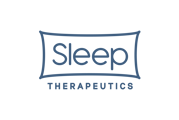Can Sleep Apnea Qualify for the Canadian Disability Tax Credit? Here's What You Need to Know
Sleep apnea alone does not automatically qualify someone for the Canadian Disability Tax Credit (DTC). However, eligibility may be possible if the condition significantly restricts daily activities or requires life-sustaining therapy, such as CPAP or BiPAP, for at least 14 hours per week.
Eligibility Criteria
The Canada Revenue Agency (CRA) assesses eligibility based on the following areas:
1. Breathing
- If sleep apnea requires CPAP or BiPAP use and is considered essential for daily functioning, it may qualify.
2. Energy & Stamina
- If symptoms such as extreme fatigue, cognitive impairment, or reduced mobility persist despite treatment, you may be eligible.
3. Other Conditions
- If sleep apnea contributes to or worsens other disabling conditions (e.g., heart disease, diabetes, or severe obesity), this may strengthen the case for eligibility.
How to Apply
-
Complete Form T2201
- Obtain the Disability Tax Credit Certificate (Form T2201) from the CRA website.
-
Medical Practitioner Certification
- A doctor, nurse practitioner, or sleep specialist must complete and sign the form, confirming the impact of sleep apnea on your daily life.
-
Submit to the CRA
- Submit the completed form to the CRA, which will review the application and determine eligibility.
Important Considerations
- Patients who use CPAP but do not experience significant daily impairments may not qualify.
- Those with severe sleep apnea that affects daily functioning, particularly if combined with other medical conditions, are more likely to be eligible.
